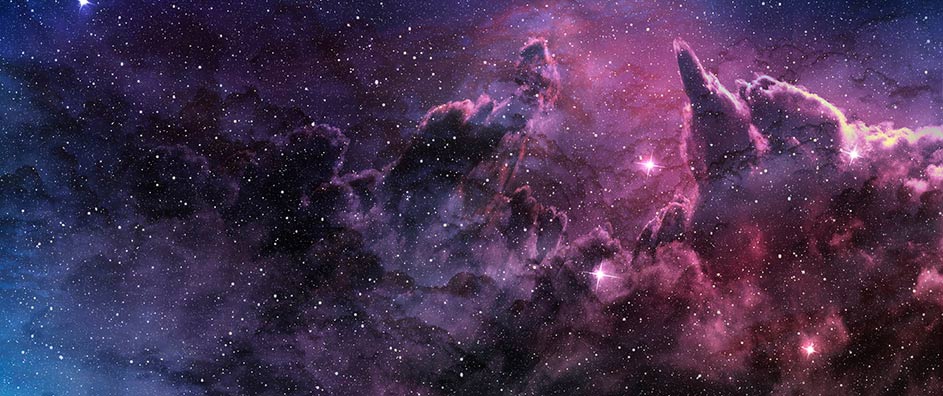The views expressed in our content reflect individual perspectives and do not represent the authoritative views of the Baha'i Faith.
“Futile! Futile!” laments the Teacher, “Absolutely futile! Everything is futile!”—Ecclesiastes 1:2.
So begins the Book of Ecclesiastes, one of the more unusual books of the Bible. The ‘Teacher’ and narrator of Ecclesiastes, whom tradition regards as Solomon the son of David, identifies himself as a king in Jerusalem, and recounts his life’s pursuit of meaning and wisdom. His opening statement forms a refrain throughout the book. Most human plans and ambitions he realizes to be “vanity (or ‘futility’) and a chasing after wind.”—1:14.
It would be too facile to write off Solomon’s message as pure pessimism, however. There is good reason to understand some of the Teacher’s most discouraging statements as hypotheticals—he is not describing human life as it is, but as it would be apart from God. This is most clear in his observation, on the one hand, that good deeds are futile because all people die alike and go to “Sheol” or the netherworld—versus his confidence, on the other hand, that:
Though a sinner do evil an hundred times, and his days be prolonged, yet surely I know that it shall be well with them that fear God, which fear before him: but it shall not be well with the wicked… – Ecclesiastes 9:2; 8:12-13.
Faced with this tension, it makes sense to read Solomon’s lament about the futility of righteousness as a ‘what if:’ If we confine ourselves to this material existence that we observe and understand, it is true that all people die alike, and justice is not always served in this life. Yet the providence of God is the Teacher’s overriding consideration, and leads him to affirm that there is more to the human condition than meets the eye.
This is key to understanding the Teacher’s strongest words on the state of the dead, which follow his lament over the futility of good deeds:
For to him that is joined with all the living there is hope; for a living dog is better than a dead lion. For the living know that they shall die: but the dead know not anything, neither have they any more a reward; for the memory of them is forgotten. As well their love, as their hatred and their envy, is perished long ago; neither have they any more a portion for ever in anything that is done under the sun…Whatsoever thy hand findeth to do, do it with thy might; for there is no work, nor device, nor knowledge, nor wisdom, in Sheol, whither thou goest. – Ecclesiastes 9:4-6, 10.
Notice that if we take this statement at face value, it denies not only a heavenly afterlife, but also a future literal resurrection of the dead. “Neither have they any more a portion forever…” In this case it would be impossible to affirm, in good faith, that justice will eventually be served, or that “God will bring every work into judgment, with every hidden thing, whether it be good, or whether it be evil.”—Ecclesiastes 12:14.
However, if we understand this passage as hypothetical—along the lines described above—then it simply describes the fate of man apart from God’s grace and intervention. If we disregard the Divine and limit ourselves to what we can observe and rationally comprehend, it appears that death marks the end of all human hopes, and man is nothing more than an animal. One related passage in Ecclesiastes brings this out, although many translations obscure its true meaning:
For that which befalleth the sons of men befalleth beasts; even one thing befalleth them; as the one dieth, so dieth the other; yea, they have all one breath; so that man hath no pre-eminence above a beast; for all is vanity. All go unto one place; all are of the dust, and all return to dust. Who knoweth the spirit of man whether it goeth upward, and the spirit of the beast whether it goeth downward to the earth? – Ecclesiastes 3:19-21.
In Hebrew, the last sentence can be more literally translated: “Who knoweth the spirit of man that goeth upward, and the spirit of the beast that goeth downward to the earth?” Can you see how just a slight variance makes all the difference? Instead of questioning whether such an ascending spirit exists, the Teacher affirms it, but points out that no one comprehends its nature—something the Baha’i writings also emphasize. Apart from that spirit, the destiny of humans and animals is the same.
One of the Teacher’s final comments confirms this recognition of a human spirit different from that of animals—that at physical death, “the dust returneth to the earth as it was, and the spirit (Hebrew: rûaḥ) returneth unto God who gave it” (Ecclesiastes 12:7). The Baha’i teachings express a very similar truth:
And now concerning thy question regarding the soul of man (Arabic: rūḥ) and its survival after death. Know thou of a truth that the soul, after its separation from the body, will continue to progress until it attaineth the presence of God, in a state and condition which neither the revolution of ages and centuries, nor the changes and chances of this world, can alter. It will endure as long as the Kingdom of God, His sovereignty, His dominion and power will endure. It will manifest the signs of God and His attributes, and will reveal His loving kindness and bounty. – Gleanings from the Writings of Baha’u’llah, pp. 155-156.
In one passage, Abdu’l-Baha explains the threefold distinction between the physical nature that humans have in common with animals, the human subjective intellect (nefeš–nafs), and this divine indwelling spirit:
Man is endowed with an outer or physical reality. It belongs to the material realm, the animal kingdom, because it has sprung from the material world. This animalistic reality of man he shares in common with the animals.
…But man is endowed with a second reality, the rational or intellectual reality; and the intellectual reality of man predominates over nature… Yet there is a third reality in man, the spiritual reality… That power is conferred upon man through the breath of the Holy Spirit. It is an eternal reality, an indestructible reality, a reality belonging to the divine, supernatural kingdom…
That celestial reality, the third reality of the microcosm, delivers man from the material world… Escaping, he will find an illuminating reality, transcending the limited reality of man and causing him to attain to the infinitude of God… and submerging him in the sea of the rays of the Sun of Reality. – Foundations of World Unity, p. 51.
As Lewis Bayles Paton remarked concerning Hebrew beliefs about the human and divine spirit, “All individual rûḥôth [spirits] are absorbed in the one rûaḥ of Yahweh.” The Teacher of Ecclesiastes concurs with the other prophets that humanity is distinguished by the possession of such a God-breathed spirit, destined to return to Him.
Next: The ‘End Times’—Real or Symbolic?
You May Also Like
Comments

















Unfortunately I am no expert on biblical chronology.
Most sources I find place David and Solomon somewhere around the end of the second millennium and beginning of the first BCE.
This agrees with the Guardian's comment that David/Solomon lived in the 10th century BCE (Dawn of a New Day p. 76)
http://reference.bahai.org/en/t/se/DND/dnd-88.html
To get a more specific date we would have to find an event in the Bible whose secular date is secure and then rely upon the Bible's internal chronology to work back to David and Solomon.
N.B. the Rabbinic Jewish chronology of the Bible differs from ...others by about 165 years. Nobody seems quite sure why that is. It places the reign of David in the 9th century BCE.
Allah-u-Abha!
Dan
I have a Christian friend that has this question: What do I do in the afterlife, will I be happy doing my exercises, my wood working or will I be bored to death. I told him you will be happy, with Jesus, wife, friends in Paradise. Apparently that is not enough.
Walter
@Hooshang S. Afshar: Ah, but they were Divine Revelators. It's understandable for the common man to worry about his afterlife.
From what I understand, we are unable to really imagine the afterlife, with only our Earth experiences to draw from. It would be like a baby in utero trying to imagine the world outside. But you are right, the Writings do indicate we will recognize our loved ones, and live in the company of the holy beings and Manifestations of God. This passage from "Gleanings from the Writings of Baha'u'llah" indicates also that pure souls will continue to serve humanity, and all the worlds of God!
"The soul that hath remained faithful to the Cause of God, and ...stood unwaveringly firm in His Path shall, after his ascension, be possessed of such power that all the worlds which the Almighty hath created can benefit through him. Such a soul provideth, at the bidding of the Ideal King and Divine Educator, the pure leaven that leaveneth the world of being, and furnisheth the power through which the arts and wonders of the world are made manifest" (Gleanings p. 161).
Dan